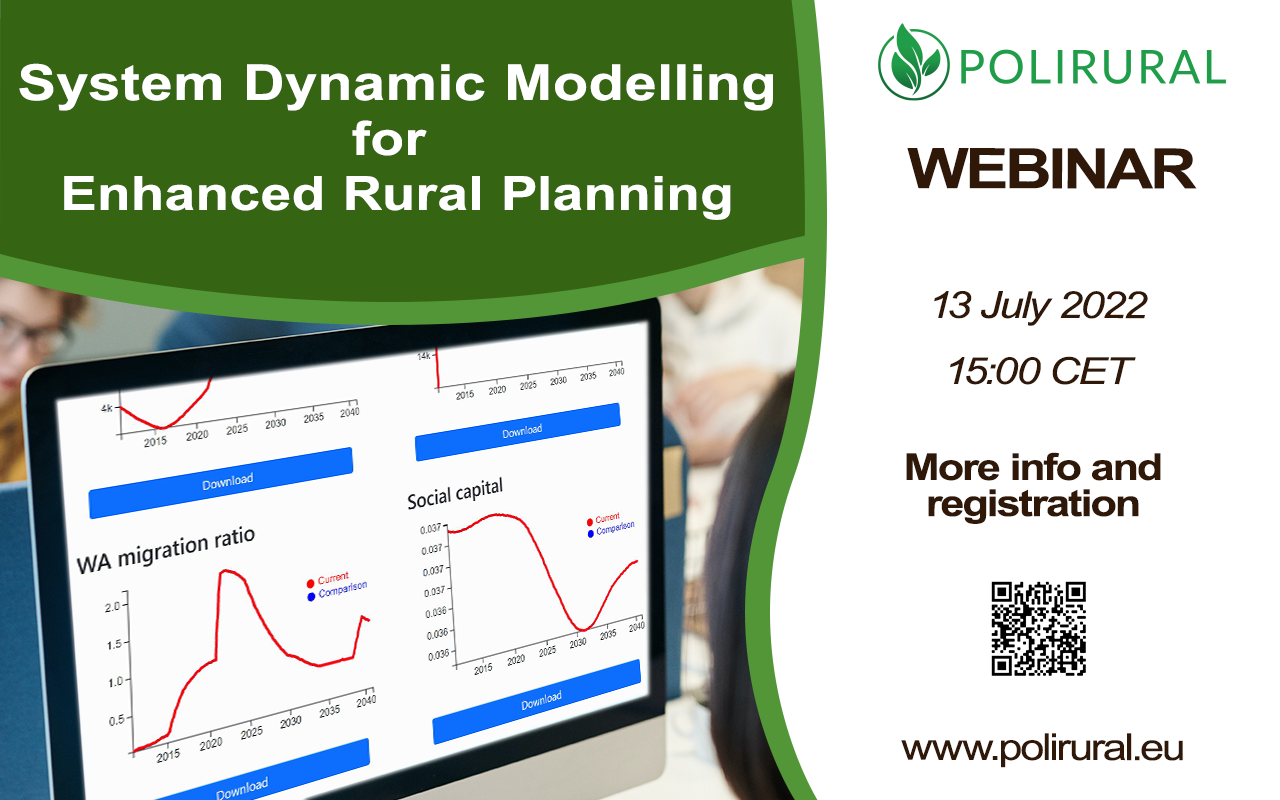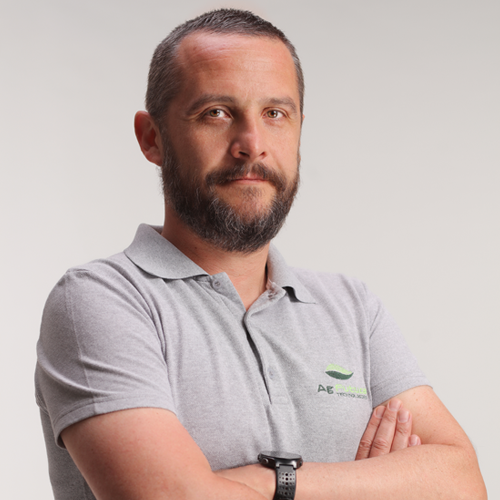General Info:
- Date: 13 July 2022 |15:00 CET
- Focus: Semex
- Moderator: 21C
- Experts: 22Sistema & AVINET
- Pilots: AUA (GR) & InnovAgritech (IT)
Recording:
Description:
 The first System Dynamic Model (SDM) was invented decades ago when the internet was still in its infancy. We have come a long way since then in terms of a tremendous increase in computing power, the availability of data, and ease of access to sophisticated tools and communication platforms. So, it is time to make SDM tools and the explanatory power of the SDM approach more widely available to those involved in policy and regional development. This is precisely what PoliRural has been doing for the past three years. Our SDM tool is based on a general rural model that contains 8 interconnected modules with over 300 parameters. This general model has been customised to 11 pilot regions, based on discussions with each pilot leadership team. With this tool, rural stakeholders can examine how trends may play out locally under the influence of different drivers of change. They can correct unwanted trends or achieve desired ones by tweaking policy interventions until an optimal mix is reached. This webinar will explain in more detail how the SDM tool was built, how it works, and how it is being used by stakeholders in PoliRural regions to improve rural planning. The event will feature an interactive session to allow participants to ask questions and/or respond to any of the points
The first System Dynamic Model (SDM) was invented decades ago when the internet was still in its infancy. We have come a long way since then in terms of a tremendous increase in computing power, the availability of data, and ease of access to sophisticated tools and communication platforms. So, it is time to make SDM tools and the explanatory power of the SDM approach more widely available to those involved in policy and regional development. This is precisely what PoliRural has been doing for the past three years. Our SDM tool is based on a general rural model that contains 8 interconnected modules with over 300 parameters. This general model has been customised to 11 pilot regions, based on discussions with each pilot leadership team. With this tool, rural stakeholders can examine how trends may play out locally under the influence of different drivers of change. They can correct unwanted trends or achieve desired ones by tweaking policy interventions until an optimal mix is reached. This webinar will explain in more detail how the SDM tool was built, how it works, and how it is being used by stakeholders in PoliRural regions to improve rural planning. The event will feature an interactive session to allow participants to ask questions and/or respond to any of the pointsExperts & Pilots:
Antoni Oliva is an Agricultural Engineer specialized in environmental management and sustainability. I (He) use(s) System Dynamics as a tool to understand current situation and give qualitative insights and meaningful participation. Free-lance researcher and consultant with more than 20 years of experience in projects for administrations (local, national and international) and corporations. He is a founder of 22SISTEMA (www.22sistema.com).


Incoronata Langianese is a 3rd year PhD student in Health Economics at the University of Foggia, and she specializes in Economics and agricultural policy. Her work concerns not only research on international commerce and the impacts of trade policies on the regional and national agri-food sector but also rural studies and policies and their impacts. She is also a part of the crew at the Rural Development Laboratory at the University of Foggia and collaborates with Innovagritech, a spin-off of the same university.
Nicoleta Darra, Research Associate (Female). Nicoleta DARRA (F) is a PhD student in AUA, holding a M.Sc. degree in GIS and Spatial Analysis. Her research interests revolve around remote sensing applications, precision agriculture and data analysis. The last four(4) years, she has been involved in numerous research H2020 projects (IoF2020, Big Data Grapes, GATES, PoliRural, SHERPA, AgriCaptureCO2, FRIETS) related to rural development, smart farming and ICT technologies. Additionally, she has participated in several national projects as project manager (in research projects) and PA instructor (in educational projects). She has nine (10) papers, one (1) in international conference, five (5) in national conferences and four(4) in peer-reviewed journals.














